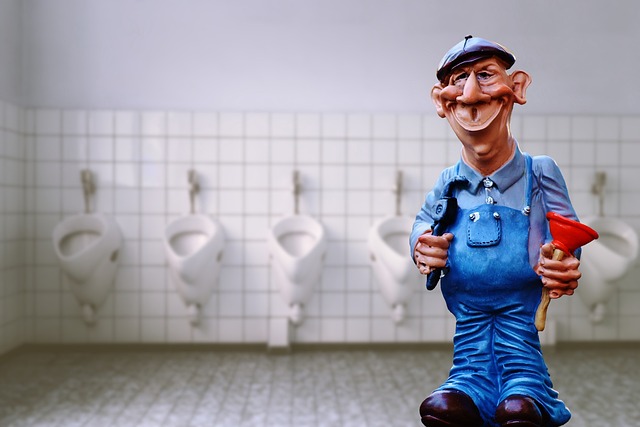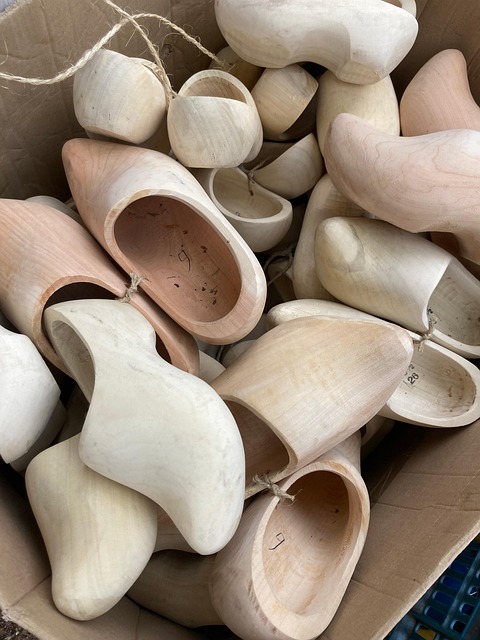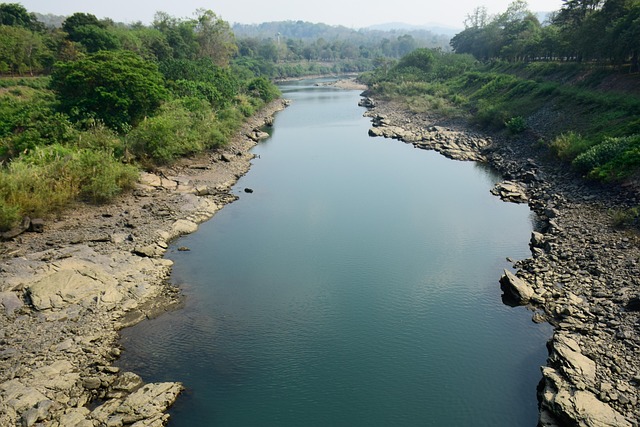Gurgling sink sounds typically signal a signs of a clogged drain, often caused by pipe blockages from hair, grease, or roots. Basic plumbing knowledge helps identify issues: slow drainage, standing water, and gurgling noises. Simple solutions like plunging or using a drain snake are initial attempts at clearing clogs. Regular maintenance, avoiding specific items flushed down the drain, and installing covers prevent future blockages, while severe cases require professional plumbing services.
Are you tired of that persistent gurgling noise coming from your sink? It could be more than just an annoying sound; it might be a sign of a clogged drain. Understanding these sounds and their causes is key to maintaining a smooth plumbing system. In this article, we’ll break down the basics of how drains work and explore common culprits behind gurgles, offering practical solutions and preventive measures to tackle and avoid future clogs.
- Understanding Gurgling Sounds: The Basics of Plumbing and How Drains Work
- Common Causes of Clogged Drains Leading to the Unwanted Gurgles
- Solutions and Prevention: What You Can Do About a Clogged Drain
Understanding Gurgling Sounds: The Basics of Plumbing and How Drains Work

Understanding gurgling sounds in your sink involves grasping the basics of plumbing and how drains work. Every home’s plumbing system shares a common goal: to move water and waste away from your living spaces. Drains, pipes, and vents form a complex network that facilitates this process. When water flows down the sink, it enters the drainpipe, which connects to larger pipes beneath your home. These pipes carry the water to the sewer or septic system for disposal. The gurgling sound is typically an indication that water is trying to flow through a partially blocked pipe, often caused by a clogged drain.
Signs of a clogged drain include slow drainage, standing water in the sink, and distinctive gurgling noises. These issues occur when something—like food scraps, hair, or other debris—blocks the path of water and waste. Over time, this buildup can lead to significant clogs that require professional plumbing services for effective removal. Regular cleaning and maintenance practices can help prevent these clogs, ensuring your drains operate smoothly and efficiently.
Common Causes of Clogged Drains Leading to the Unwanted Gurgles

Many homeowners often hear unusual gurgling sounds coming from their sinks, which can be disconcerting. These noises are typically signs of a clogged drain, a common household issue that can stem from various factors. One of the primary causes is debris buildup in the pipes—from hair, grease, food particles, or even toys accidentally flushed down the drain. Over time, these substances accumulate and form clogs, leading to gurgling as water tries to force its way through the obstruction.
Another frequent culprit is tree root infiltration into sewer lines. Some trees send out roots in search of moisture and nutrients, and these can grow into pipes, causing significant blockages. As the roots expand, they can damage the pipe structure, leading to leaks and gurgling sounds. Additionally, old or poorly installed plumbing might have gaps or cracks that allow water to seep into the drain, creating a vacuum and producing those familiar gurgles.
Solutions and Prevention: What You Can Do About a Clogged Drain

If you’ve heard the telltale gurgling sounds indicating a clogged drain, don’t panic! There are several simple solutions you can try before calling a plumber. Start by turning off the water supply to avoid further damage or overflow. Then, use a plunger, applying gentle but firm pressure to dislodge the blockage. Ensure the plunger creates a tight seal around the drain’s opening for best results.
For more persistent clogs, consider using a drain snake or auger to break up and remove any debris. Regular maintenance can prevent future clogs, so keep your drains clean by avoiding flushing grease, coffee grounds, or large food particles down the sink. Additionally, install drain covers to catch hair and other small items before they enter the pipes.
Understanding the gurgling sounds in your sink could be the key to preventing costly plumbing issues. By identifying common causes like hair buildup, grease, or foreign objects, you can take proactive measures to avoid clogged drains. Regular maintenance and simple cleaning techniques are effective solutions, ensuring your plumbing system remains efficient and hassle-free. Remember, recognizing the signs of a clogged drain, such as gurgling noises, is crucial for timely intervention.
